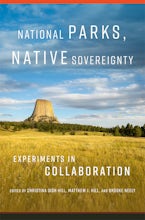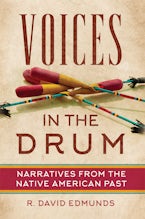Energy Crises
Nixon, Ford, Carter, and Hard Choices in the 1970s
by Jay Hakes
Published by: University of Oklahoma Press
Imprint: University of Oklahoma Press
412 Pages | 6 x 9 | 10 b&w illus.
$26.95
$36.95
$29.95
The 1970s were a decade of historic American energy crises—major interruptions in oil supplies from the Middle East, the country’s most dangerous nuclear accident, and chronic shortages of natural gas. In Energy Crises, Jay Hakes brings his expertise in energy and presidential history to bear on the questions of why these crises occurred, how different choices might have prevented or ameliorated them, and what they have meant for the half-century since—and likely the half-century ahead.
Hakes deftly intertwines the domestic and international aspects of the long-misunderstood fuel shortages that still affect our lives today. This approach, drawing on previously unavailable and inaccessible records, affords an insider’s view of decision-making by three U.S. presidents, the influence of their sometimes-combative aides, and their often tortuous relations with the rulers of Iran and Saudi Arabia. Hakes skillfully dissects inept federal attempts to regulate oil prices and allocation, but also identifies the decade’s more positive legacies—from the nation’s first massive commitment to the development of alternative energy sources other than nuclear power, to the initial movement toward a less polluting, more efficient energy economy.
The 1970s brought about a tectonic shift in the world of energy. Tracing these consequences to their origins in policy and practice, Hakes makes their lessons available at a critical moment—as the nation faces the challenge of climate change resulting from the burning of fossil fuels.
Hakes deftly intertwines the domestic and international aspects of the long-misunderstood fuel shortages that still affect our lives today. This approach, drawing on previously unavailable and inaccessible records, affords an insider’s view of decision-making by three U.S. presidents, the influence of their sometimes-combative aides, and their often tortuous relations with the rulers of Iran and Saudi Arabia. Hakes skillfully dissects inept federal attempts to regulate oil prices and allocation, but also identifies the decade’s more positive legacies—from the nation’s first massive commitment to the development of alternative energy sources other than nuclear power, to the initial movement toward a less polluting, more efficient energy economy.
The 1970s brought about a tectonic shift in the world of energy. Tracing these consequences to their origins in policy and practice, Hakes makes their lessons available at a critical moment—as the nation faces the challenge of climate change resulting from the burning of fossil fuels.
An expert on U.S. energy policy, Jay Hakes has a long history of working on energy issues, including as Administrator of the U.S. Energy Information Administration during the Clinton administration and as Director for Research and Policy for President Obama’s BP Deepwater Horizon Oil Spill Commission. He also served for thirteen years as the Director of the Jimmy Carter Presidential Library. Hakes is the author of A Declaration of Energy Independence: How Freedom from Foreign Oil Can Improve National Security, Our Economy, and the Environment.
“In Energy Crises, author Jay Hakes’s unparalleled research and contextualization of this period allow the reader to become the proverbial fly on the wall, witnessing the major decisions on energy made in the Oval Office, at Camp David, and in the palaces of the Persian Gulf nations. Hakes is especially adept at explaining both the domestic and the foreign dimensions of energy developments and their reciprocal influences.”—Tyler Priest author of The Offshore Imperative: Shell Oil’s Search for Petroleum in Postwar America
“Energy Crises is an important contribution to the history of the 1970s and to the study of energy policy. It is deeply researched, well informed, and carefully argued.”—David S. Painter author of Oil and the American Century: The Political Economy of U.S. Foreign Oil Policy, 1941–1954
“Rich and deeply researched book . . . There are many lessons to be learned here . . . I highly recommend it.” Bill Loveless, director of Energy Journalism Initiative, Center on Global Energy Policy, Columbia University, and co-host of the Columbia Energy Exchange podcast.
“I thought I had a pretty basic understanding of the energy crises of the seventies until I read Energy Crises and realized there’s so much more. Highly recommended for anyone that wants to better understand what happened in the seventies and how those moments shaped American energy policy and American politics over the next fifty years. A phenomenal book.” —Ty Benefiel, co-host The Climate Pod
“If Hakes’s book holds any lessons for understanding the current energy crisis, it is this: policies frequently have unintended effects, and the full effect of state action is often not felt until years — and sometimes decades — into the future.”—Presidential Studies Quarterly












